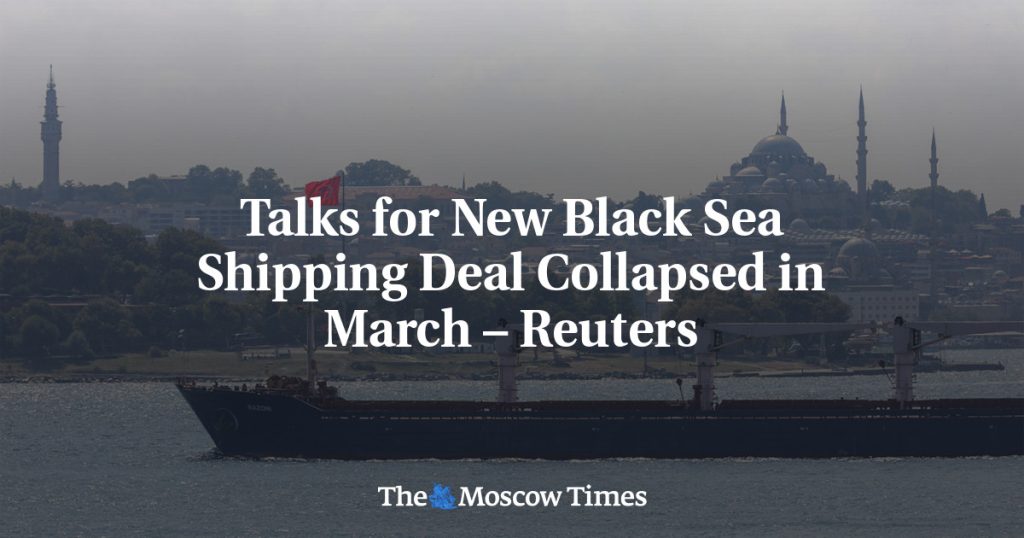In March, negotiations between Russia and Ukraine for a deal that would ensure the safe movement of cargo ships in the Black Sea collapsed at the last moment after Kyiv withdrew abruptly. The talks, mediated by Turkey after encouragement from the United Nations, spanned two months and were set to be announced by Turkish President Recep Tayyip Erdogan on March 30. However, Ukraine pulled out of the deal at the eleventh hour, causing it to fall through. The reasons for Kyiv’s sudden withdrawal from the negotiations remain unclear.
Turkey and the UN had previously mediated a similar deal, the Black Sea Grain Initiative, in July 2022, which had allowed Ukraine to export nearly 33 million metric tons of grain safely. However, Moscow withdrew from the deal in July 2023, citing unmet terms. In response, Ukraine established its own Black Sea export corridor despite threats from Russia to target ships using Ukrainian-controlled ports. The failure of the recent negotiations adds to the existing tensions in the region following Russia’s invasion of Ukraine in 2022, which has turned the Black Sea into a naval war zone and disrupted shipping volumes along a vital route for both countries.
Both Ukraine and Turkey did not respond to Reuters’ request for comment on the collapsed negotiations. The Kremlin also declined to comment on the reported breakdown in talks over a possible Black Sea deal. Kremlin spokesman Dmitry Peskov stated that there are various issues related to the Black Sea on the agenda with Turkish partners but refused to comment specifically on the situation. The lack of official statements from all parties involved has left the reasons for the failed negotiations and the potential impact it may have on Black Sea shipping routes uncertain.
The breakdown of the negotiations comes amid ongoing tensions between Russia and Ukraine, as well as concerns about the safety and security of shipping routes in the Black Sea. The failure to reach an agreement on the movement of cargo ships highlights the challenges faced by both countries in navigating the current geopolitical landscape. With large portions of the Black Sea now turned into a conflict zone, finding solutions to ensure the continued safe transport of goods remains a pressing issue for all parties involved.
Despite the setback in negotiations, the need for a resolution to the issues surrounding Black Sea shipping remains critical. The collapse of the potential deal underscores the complexity of the situation and the deep-seated tensions that continue to impact the region. The involvement of multiple stakeholders, including Russia, Ukraine, Turkey, and the UN, highlights the importance of finding a long-term solution that ensures the safe passage of cargo ships and promotes stability in the Black Sea. Moving forward, addressing the underlying issues and working towards a sustainable agreement will be essential for mitigating further disruptions to vital shipping routes in the region.
As the situation in the Black Sea remains uncertain, the failed negotiations serve as a reminder of the challenges facing all parties involved. Finding a resolution that addresses the concerns of both Russia and Ukraine while ensuring the safe movement of cargo ships will require continued efforts and cooperation. The collapse of the talks underscores the need for diplomatic initiatives and multilateral cooperation to navigate the complexities of the current geopolitical landscape. As tensions persist and shipping routes remain at risk, finding a path towards stability and security in the Black Sea region will be crucial for the economic well-being of all parties involved.


